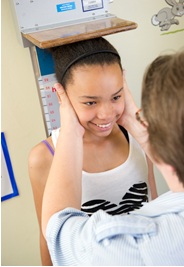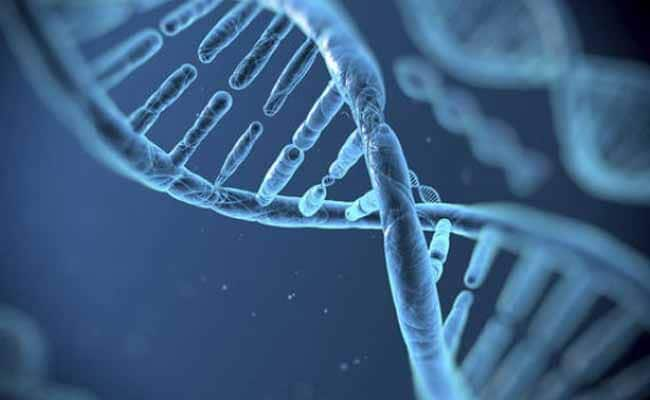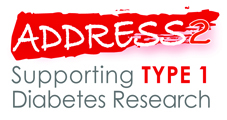To take part in ADDRESS-2 you must:
These are the only conditions bar wanting to take part! If you wish to get more information on ADDRESS-2 and join up, then you can either find the nearest hospital recruiting from diabetes clinics on the map of our sites here or contact us by sending an email to Address2@imperial.ac.uk and we can put you in touch with the research nurses at your closest site.
If you do not meet these criteria but would still like to get involved with research into type 1 diabetes you can:
- Find out more about current research studies
- Find out about other ways to find out about studies and trials
What is involved in joining ADDRESS-2?

Once you have made contact with the nearest research site connected to ADDRESS-2, the first step will be a conversation to talk through the details with them, at a time and place convenient for you. Ideally this will either be alongside a clinic visit, or at home if you’d prefer.
The research nurse will ask you to sign a consent form giving us permission to collect and securely store information about you and let you know about other type 1 diabetes research opportunities*
*It is worth noting that when someone under the age of 16 wants to join ADDRESS-2, the research nurse will ask a parent/guardian to sign these consent forms on their behalf while the participant will sign an assent form.
Contact about other type 1 diabetes research
Taking part in ADDRESS-2 means agreeing for us to contact you about other research for which you might be eligible.
It does not mean that you are automatically agreeing to take part in other studies – you will always be asked if you want to take part in any study that we contact you about, once you have been given the details of what is involved. We want to make sure everyone recently diagnosed with type 1 has the chance to take part in research should they want to, by making them aware of the opportunities.
We will only contact you about type 1 diabetes trials and studies that have been given approval by an NHS research ethics committee and which the ADDRESS-2 management committee and patient advisory group agreed should be offered to ADDRESS-2 participants.
Research Opportunities which may be offered could include:
• Research which looks at the effectiveness of new medicines or technology
• Trials aimed at slowing the progression of type 1 diabetes
• Studies to understand the causes and progression of type 1 diabetes, and how it affects people
• Research to establish how best to support people living with type 1 diabetes
Data-based research
As well as being invited for studies, ADDRESS-2 also collects information to be used in research from people who agree to take part and provide it. This data will only be used in two ways: either completely anonymously to look at patterns in who gets diabetes and how it affects them, or to match the opportunities to take part in future research which we contact you about to ensure we don’t offer studies for which you will not be eligible!
If you would also like to provide a sample of blood for research purposes, there will be a second consent form to store your blood and the DNA extracted from it.
The research nurse will ask about your diabetes, medical history and your family medical history and, if you have agreed to it, collect a blood sample.

Additional information about you from records held by the NHS will also be securely stored with the information we collect. Contact will be either by phone, email, letter or text and on average each participant will be contacted twice, though this may vary.
This process, including the collection of a blood sample if one is provided, will also be repeated around six months later to look at aspects of how your condition changes in that time, but there will be no other appointments routinely after this as part of ADDRESS-2, unless you agree to take part in a different study.
Siblings
When someone joins ADDRESS-2, they are also asked if any of their brothers or sisters would like to join ADDRESS-2. Anyone with a sibling who has type 1 diabetes has a slightly increased risk of developing the condition, and research to understand why and reduce this risk is really important. While siblings won’t be contacted for the same studies usually, the way this works is very similar for siblings in general: one interview will take place to collect information, and then consent will be sought to contact them for studies.
How it worked for one of our participants:
Andrew Kennedy was diagnosed with type 1 diabetes and shortly afterwards heard an advert on the radio about type 1 diabetes research in the north of England. He was put in touch with The Royal Liverpool University Hospital, was introduced to ADDRESS-2 and joined. Through ADDRESS-2, Andrew was contacted with information about the MonoPepT1De trial running in Cardiff, which was investigating a therapy aimed at halting the damage to the pancreas in people with type 1 diabetes. He chose to go to Cardiff for the screening tests. He subsequently found out that he wasn’t eligible, but this hasn’t deterred him from wanting to hear more about other studies.
“For me, being involved in something like this was a big positive. If I’m going to have this illness, and if I can be involved in something that might help do something towards it, then that for me is a big positive. I was like, sign me up.”
Andrew Kennedy, ADDreSS-2 Participant
“I’d certainly recommend someone else who has been recently diagnosed to join ADDRESS-2. Type 1 diabetes is not fully understood and the more people you can add to the research the better; the more chance there is of finding out what causes it, what triggers it, how do we fix it and can we predict it. I would never have found out about the Cardiff trial if I hadn’t joined ADDRESS-2.”
